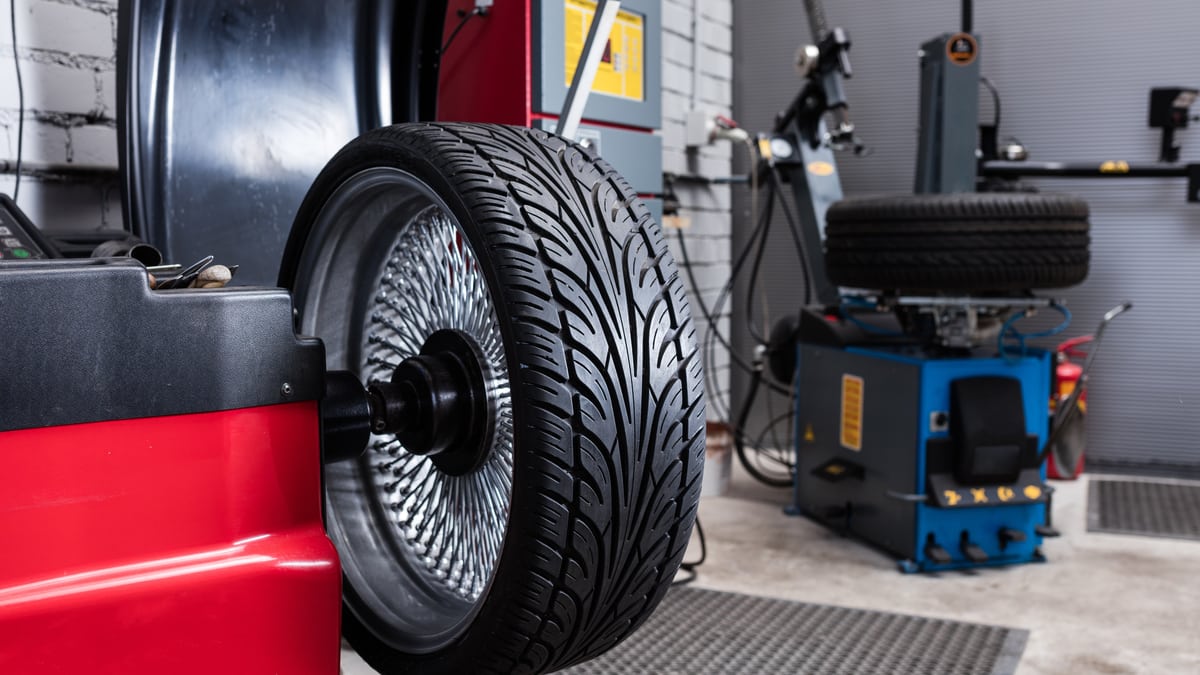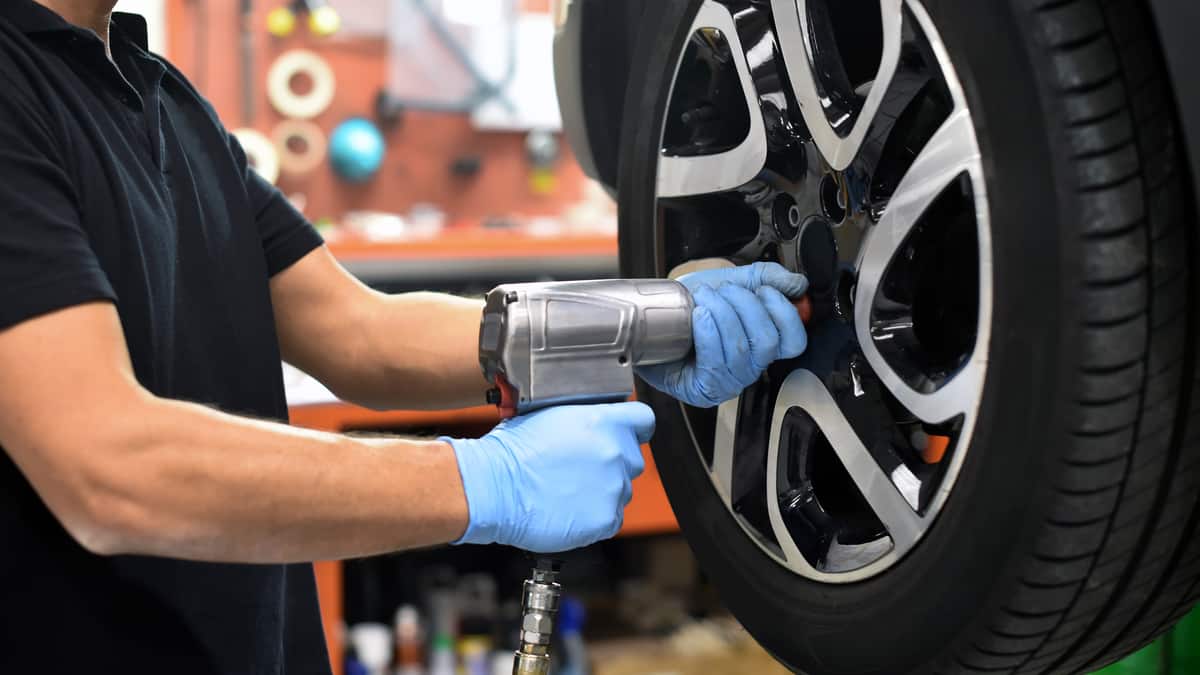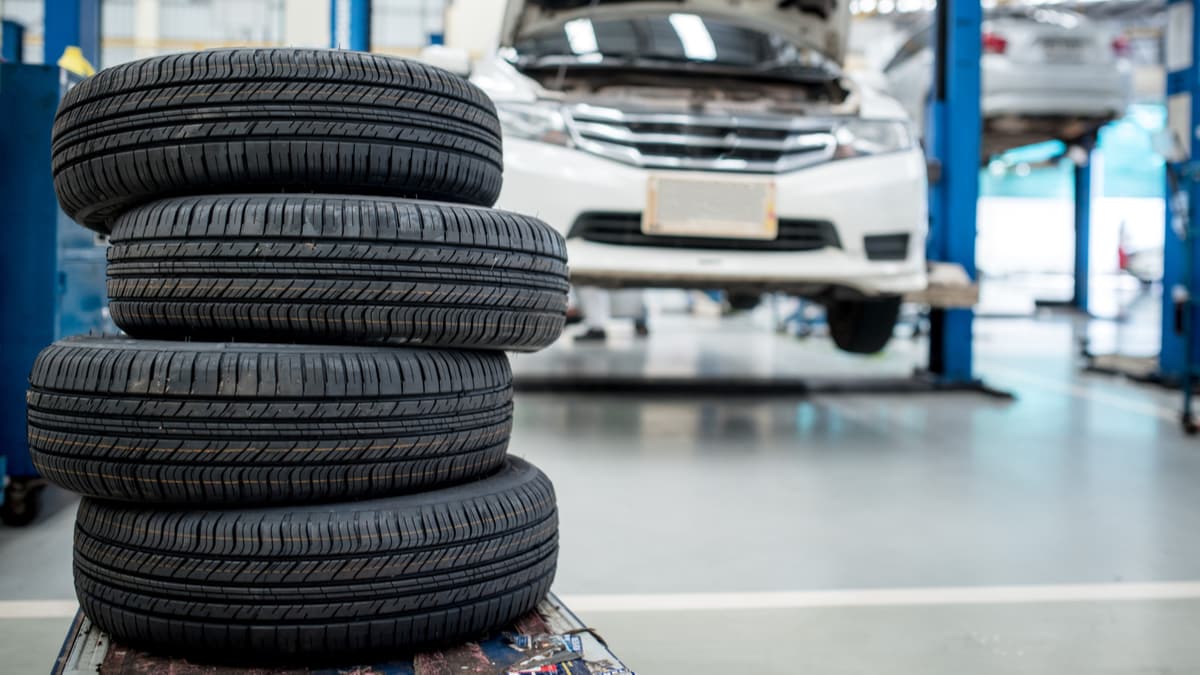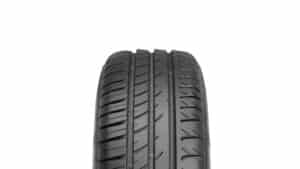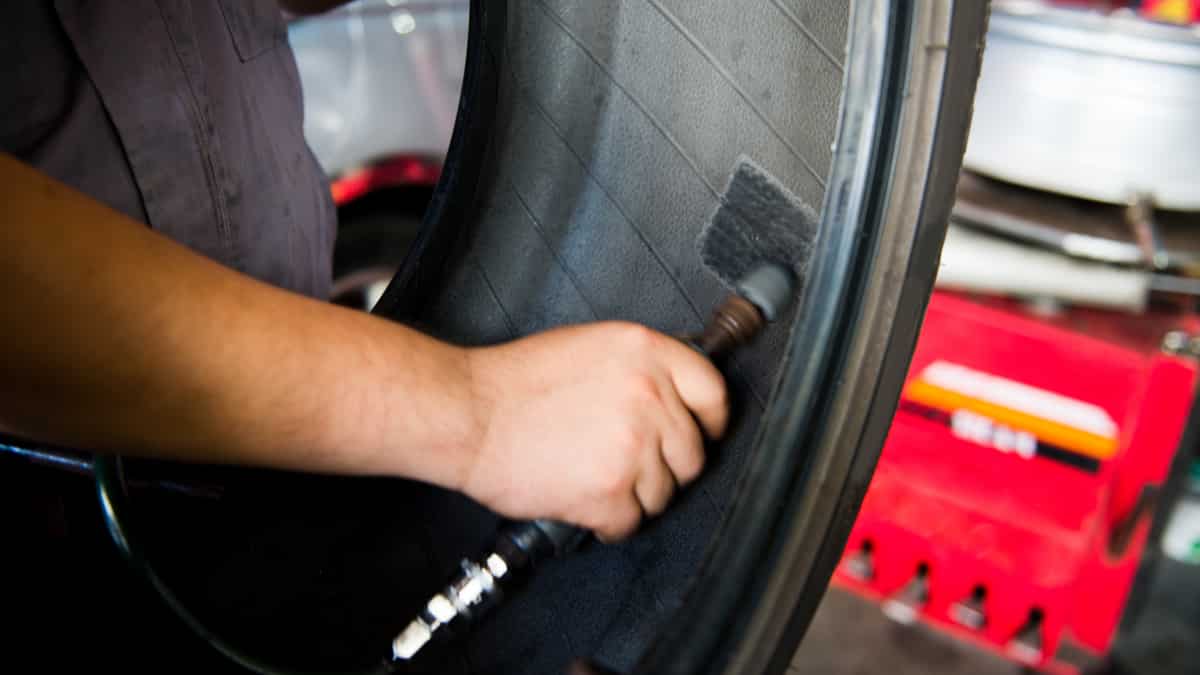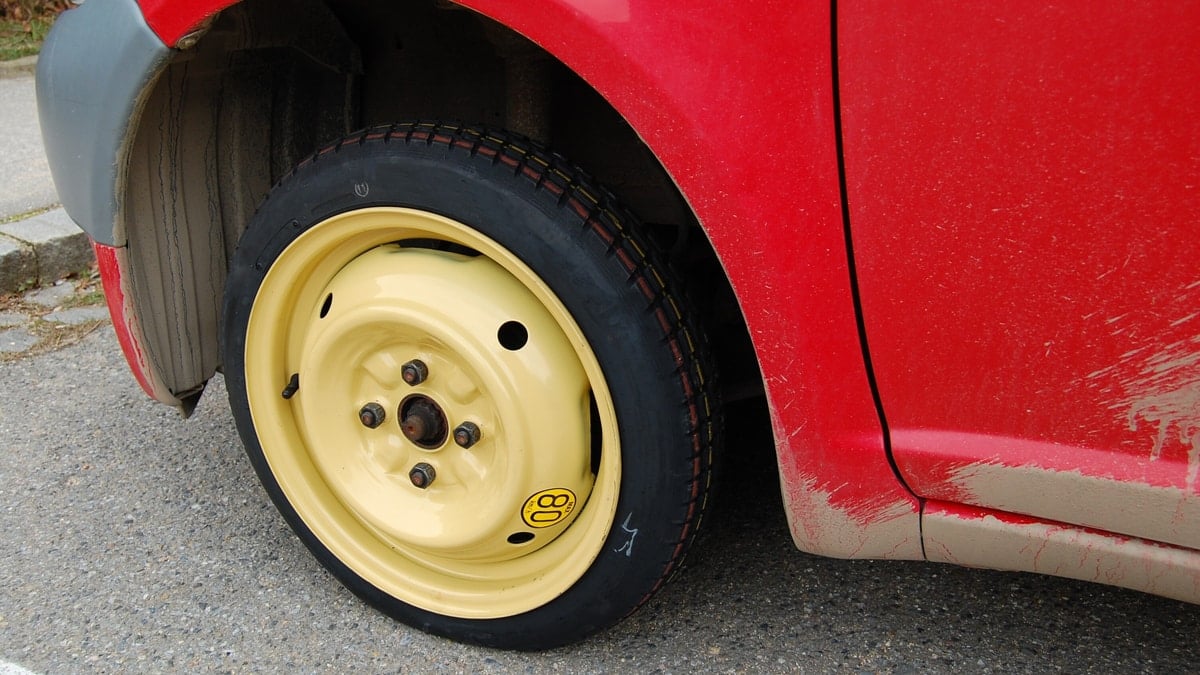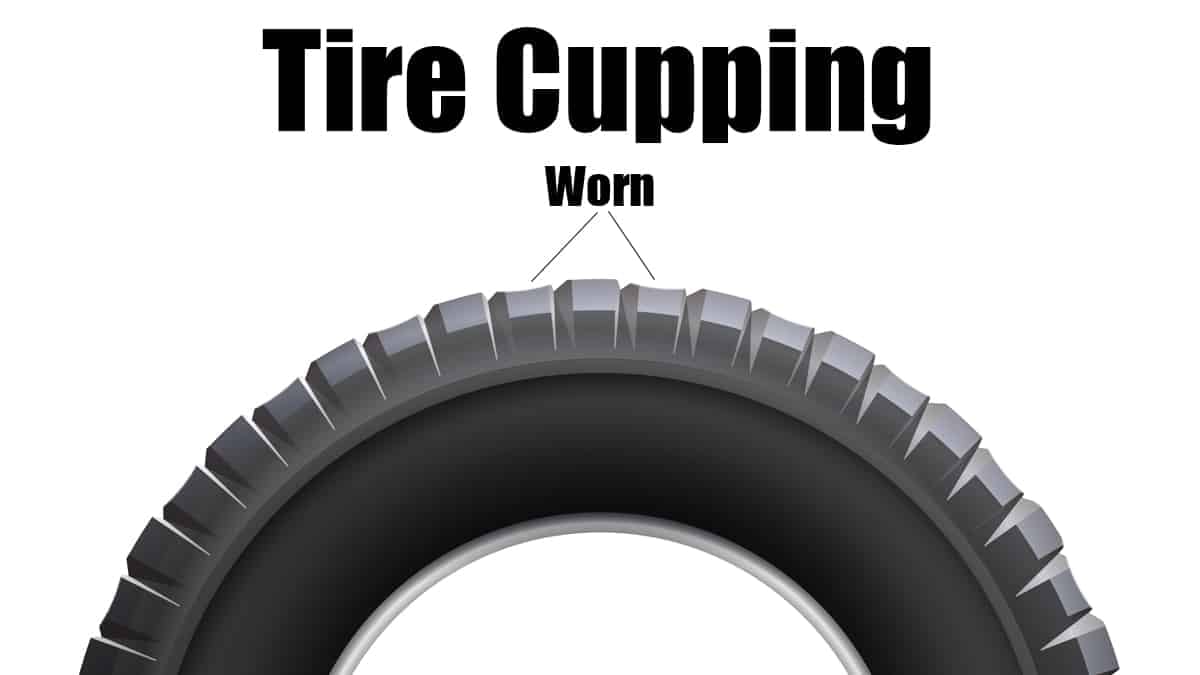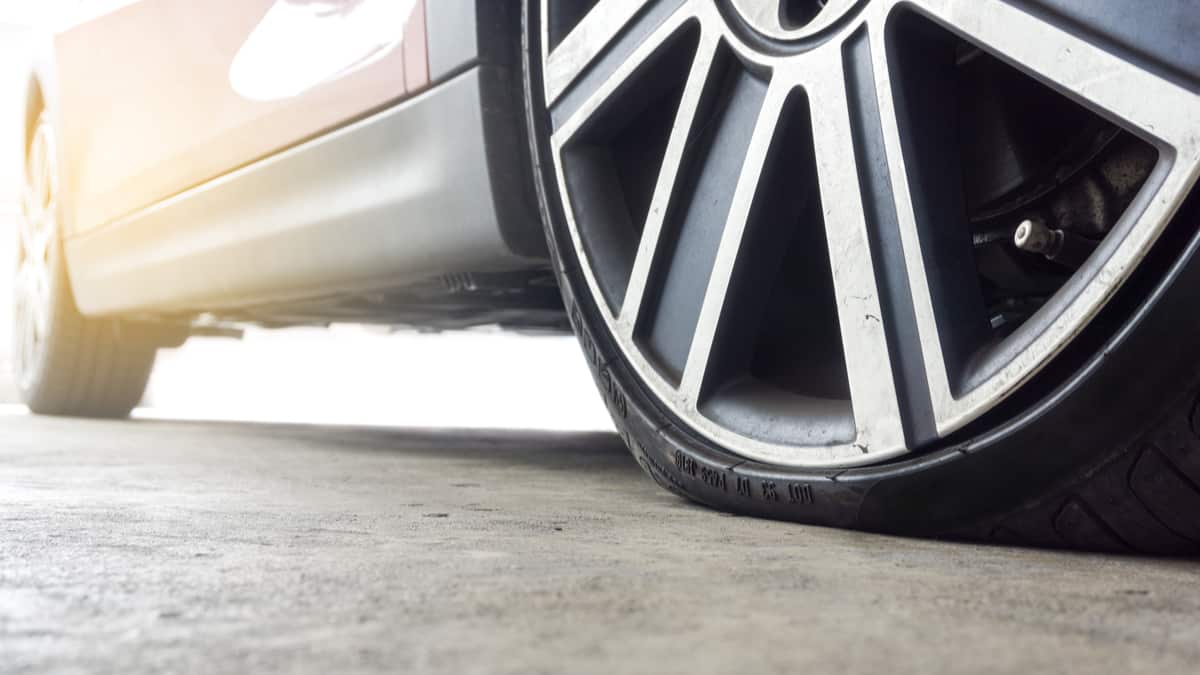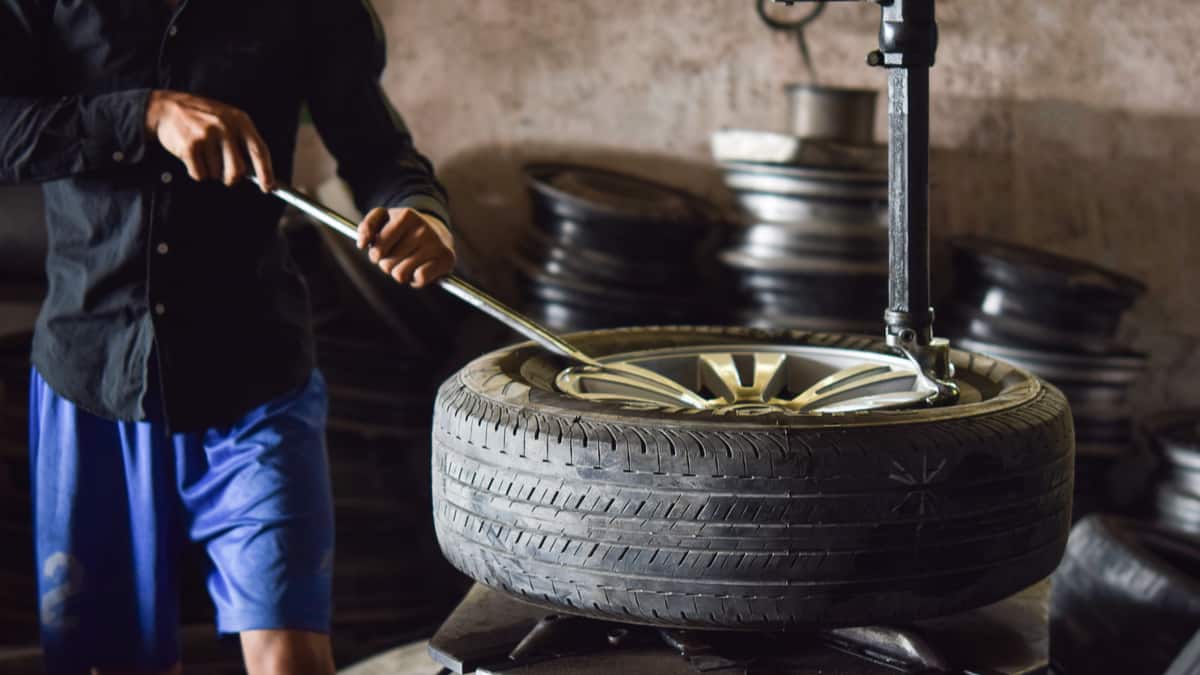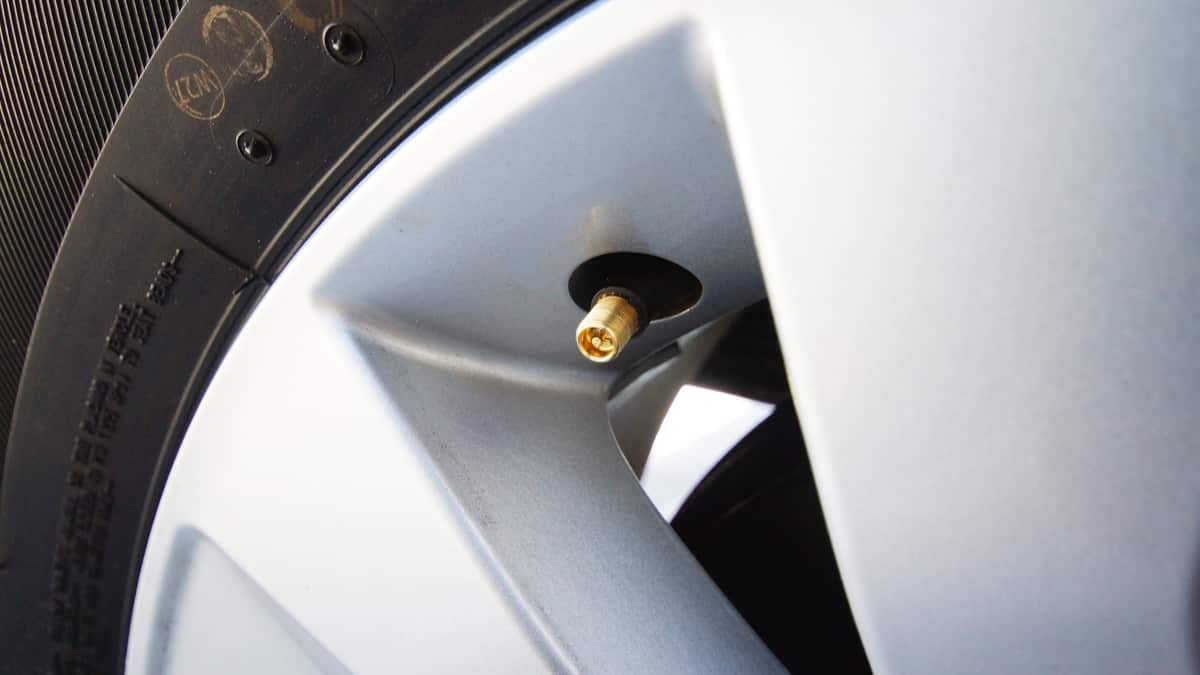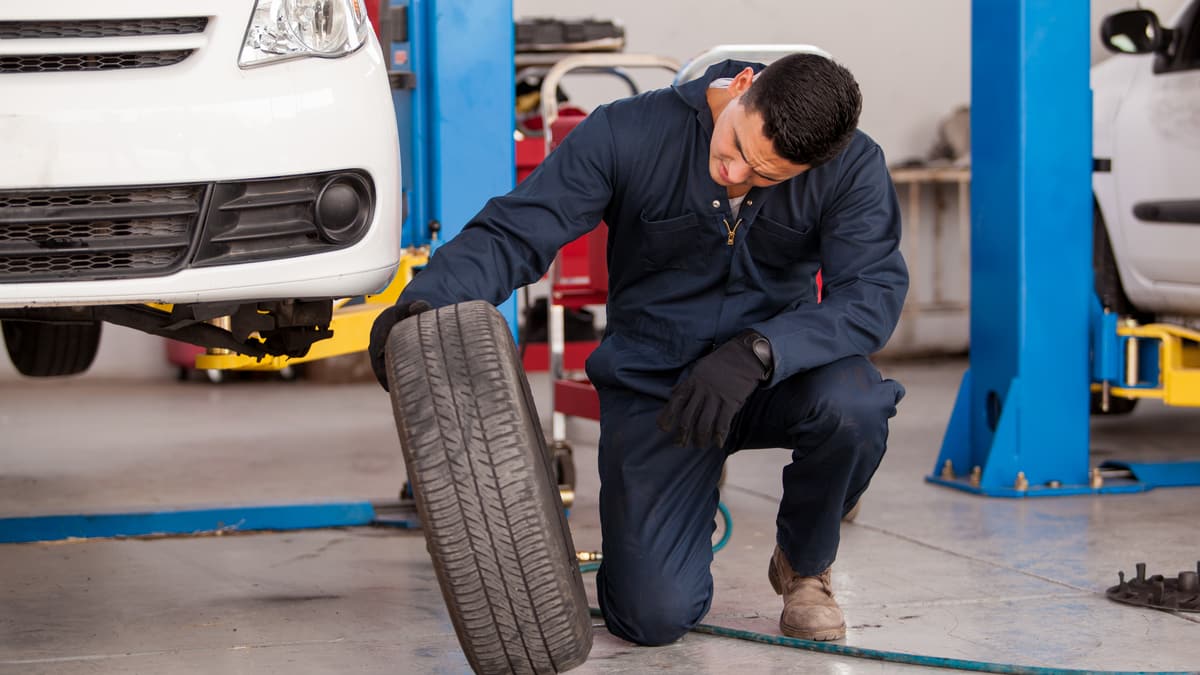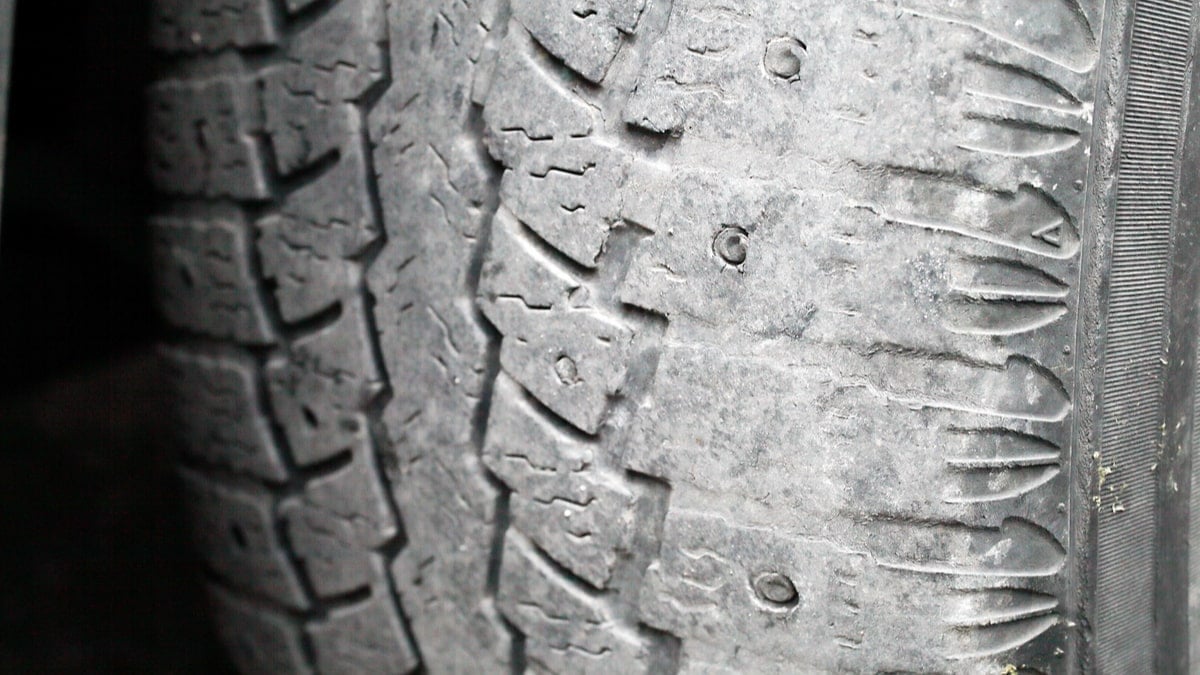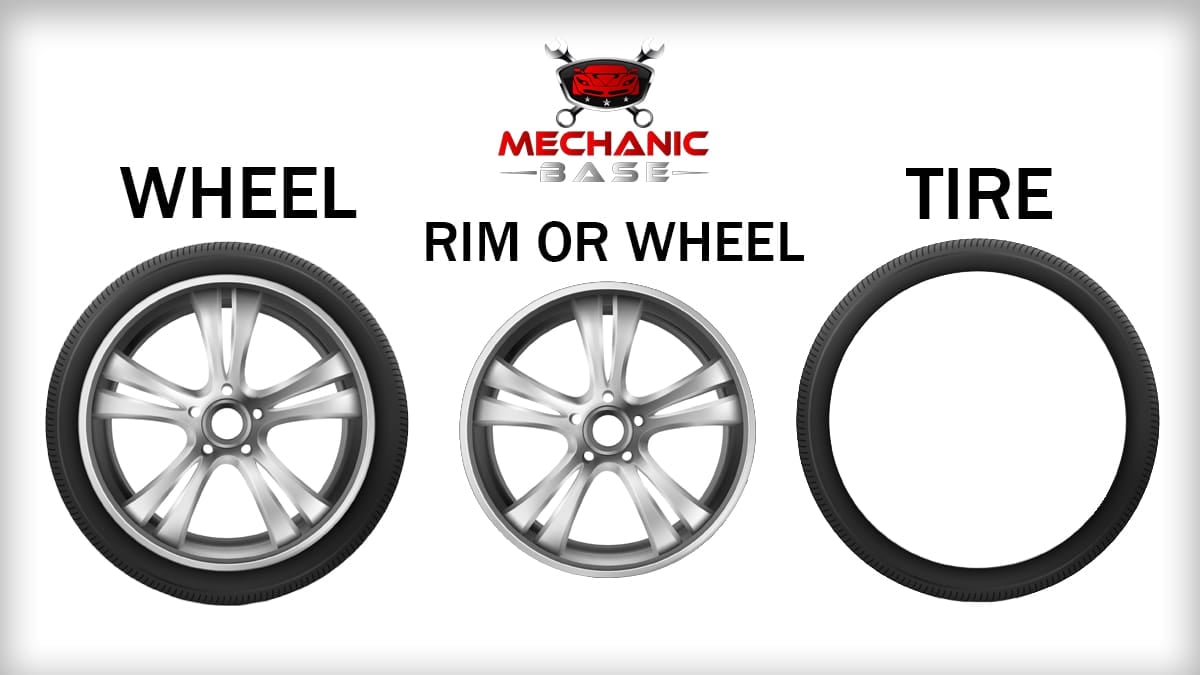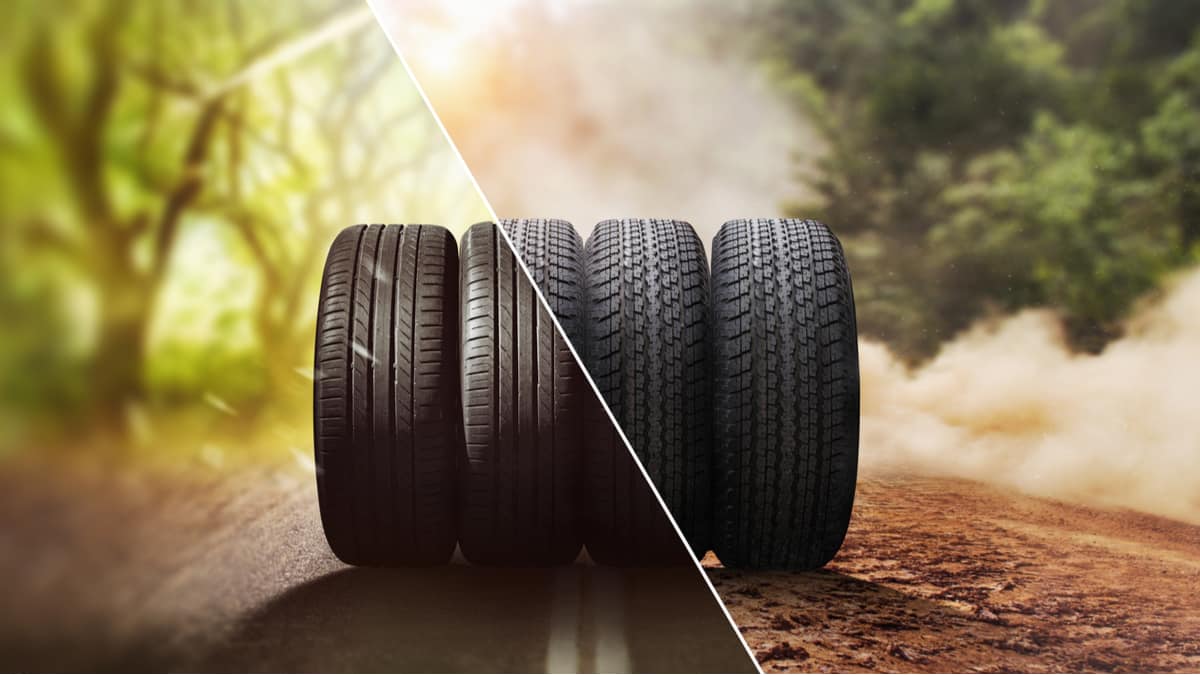The health of your car tires is essential to remaining safe on the road. For this reason, it’s important to know the symptoms of unbalanced tires. You also want to budget ahead for the tire balancing cost so you aren’t caught off-guard.
In this guide, we cover the signs that your tires are unbalanced. We also look at what causes the imbalance, give you reasons why it should be fixed and show you the average tire balancing cost. At the end of our article, you can find the answers to your most-asked questions.
Symptoms Of Unbalanced Tires
When tires are unbalanced, there’s more vibration at higher speeds and faster tread wear. There could also be unusual patterns in the tread, additional road noise and the vehicle may pull to one side. With unbalanced tires, you can also count on either worn-out suspension or steering components.
Take a closer look at these possible symptoms with us.
1. Excessive Vibrations At Higher Speeds

Most commonly, you will notice vibrations when the tires are unbalanced. While some vibrations are always normal while driving, especially on uneven road surfaces, excessive vibrations are a warning sign that something’s wrong.
With unbalanced tires, the vibrations also become more severe when driving at higher speeds. Therefore, you may not feel anything when you are heading down the road at 40 mph. Yet, the vibrations can become unbearable once you hit 60 mph or higher. The vibrations can become so bad that the whole vehicle wobbles and becomes uncontrollable.
These vibrations can lead to trouble steering the vehicle. You may even feel the vibrations through the steering wheel as it shakes.
2. Faster Tire Wear
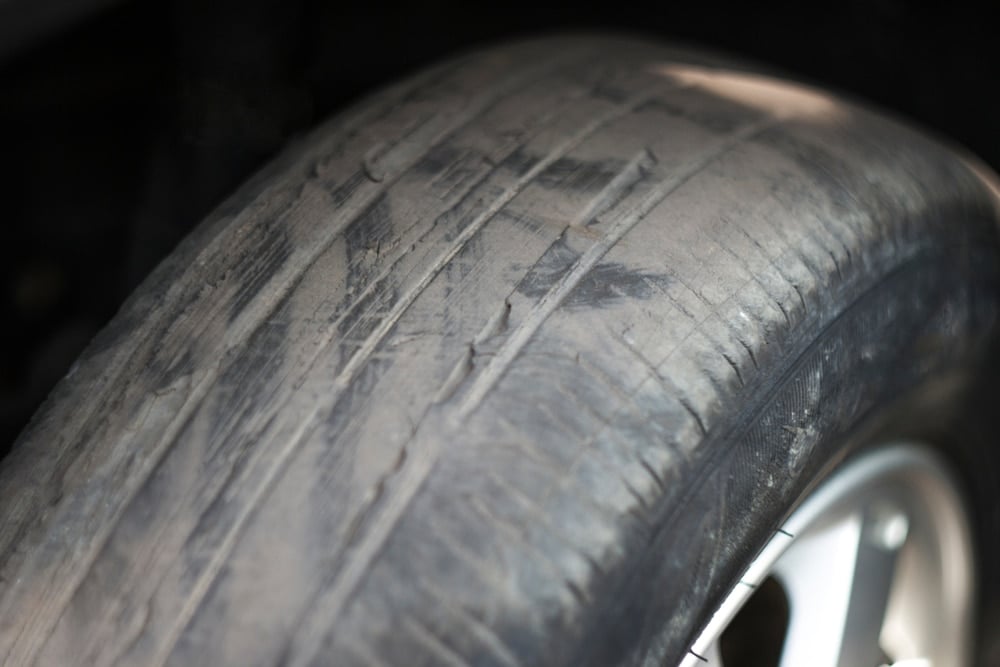
Most tires last three to five years, or 45,000 to 75,000 miles. Yet, when the tires aren’t balanced, there’s going to be excessive wear.
You may find that tire rotations need to occur more frequently and that you are spending more on tires. Considering the low cost of tire balancing, it makes sense to keep the rubber in good shape with this maintenance task.
3. Unusual Tire Wear Patterns
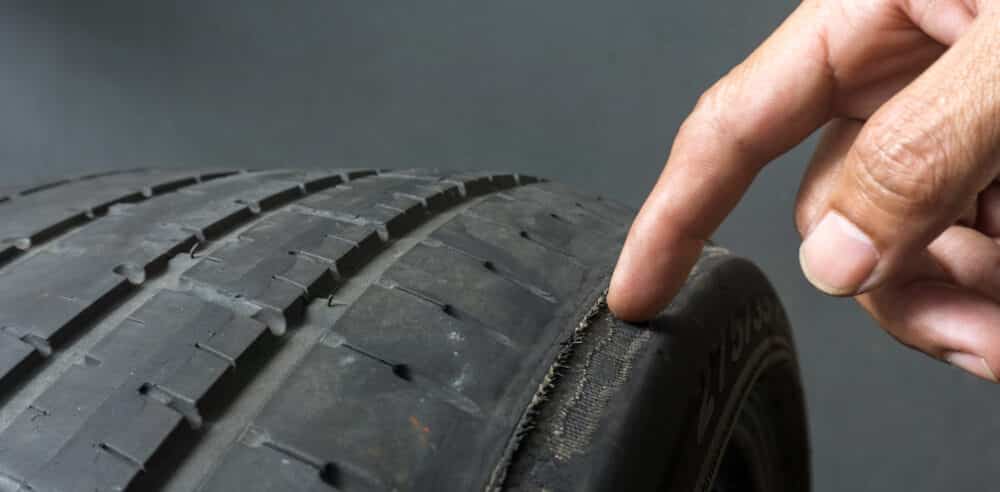
Along with faster wear, you may also notice unusual patterns in the tread. Because of the uneven contact patch with the road, strange things can happen to the tread. Most often, you’ll notice tire feathering, which is when one side is smoother than the other.
There could also be bald or flat spots on the tread. This most commonly occurs because of the vibrations, leading to the tires bouncing across the road surface.
4. Worn Out Suspension and Steering Components
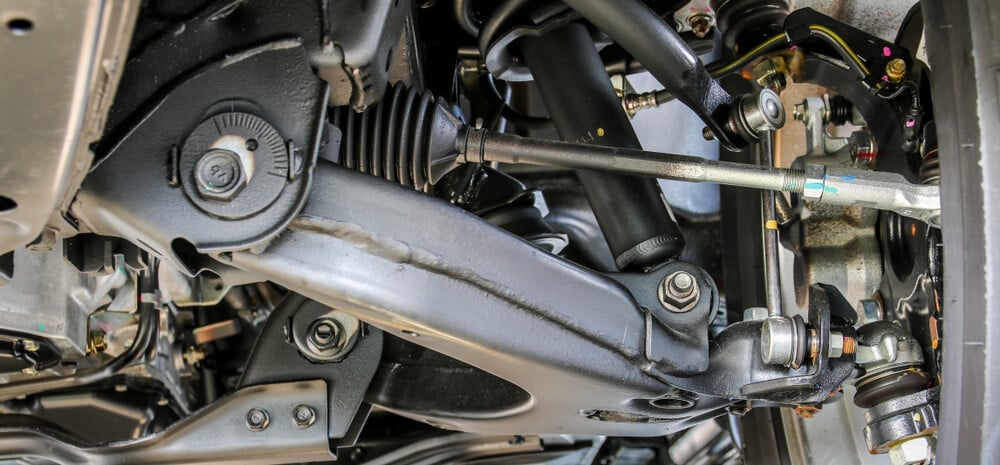
Which comes first, the worn-out suspension and steering or the unbalanced tires? It depends, the situation could occur either way. Sometimes, continuing to drive with the imbalance causes more wear on these systems, leading to components wearing out. Other times, it’s the opposite situation where these bad components cause the tires to become imbalanced. Either way, you need to fix both problems at the same time to avoid more trouble.
Among the suspension system, you may be dealing with bad shocks, struts, bushings or ball joints. However, the steering system is also susceptible to trouble, especially with the tie rod or rack and pinion.
5. Vehicle Pulls To One Side

There are numerous reasons that your vehicle may pull to one side, with unbalanced tires being one of the main culprits. However, you can also struggle to control the vehicle when a brake caliper is frozen or you have an underinflated tire on one side.
Either way, it’s easy to determine if the unbalanced tires are causing the problem. Take a look at the tires to make sure they are inflated. If they are, it’s time to have them checked and balanced.
6. Higher Road Noise
Some cars are known for road noise, while others maintain a deafening silence. Yet, when the tires aren’t balanced, there’s going to be excessive road noise for all types of vehicles. If you are accustomed to driving in your car, you’ll know when the road noise is unusual.
Additionally, worn-out tires can lead to more road noise. For that reason, it’s important to inspect the tires before deciding what to do next.
You’re not going to see your fuel economy plummet off the face of the earth if you have unbalanced tires, but you are going to notice a drop if you pay attention.
Keeping everything in motion requires a little more work from your engine, leading to reduced fuel economy. It’s just one more area you’ll be spending a little more if you neglect to balance your tires.
What Causes Unbalanced Tires?
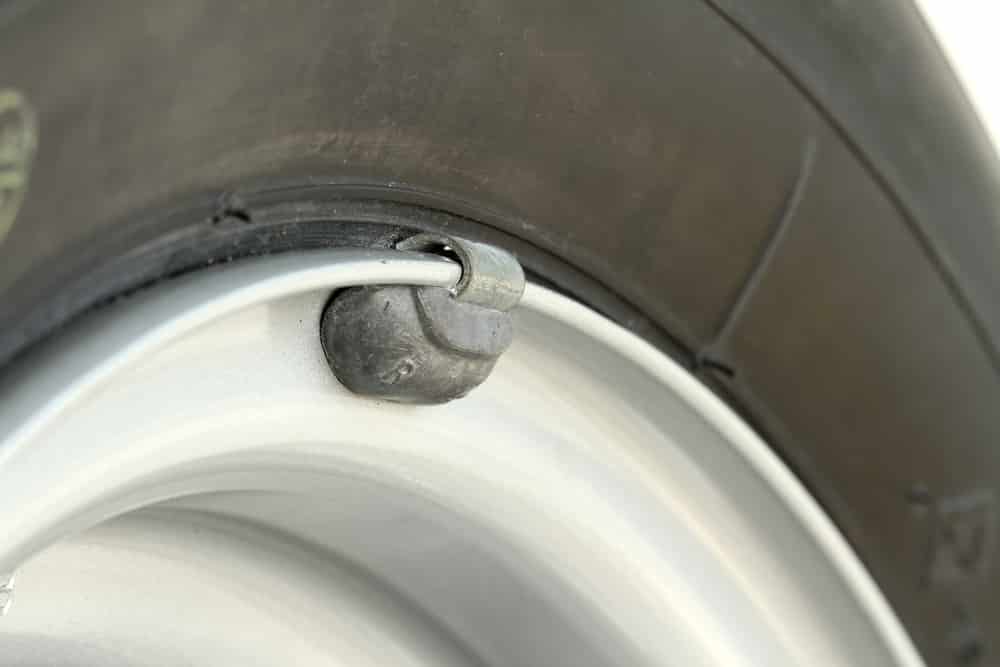
There are numerous reasons for unbalanced tires. Here are just a few to consider.
- Manufacturer defect: Some tires come unbalanced from the factory.
- Loss of wheel weight: Weights are used to balance the tires. When you hit a speed bump, deep pothole, curb or any object too hard, the weights can fall off.
- Weather: Cold air can cause deflation in the tires. If they are driven underinflated, excessive wear can occur and the balancing can be thrown off.
- Time: Over time, the wheels become unbalanced because of normal wear and changes to the tire structure.
Why You Should Fix Unbalanced Tires
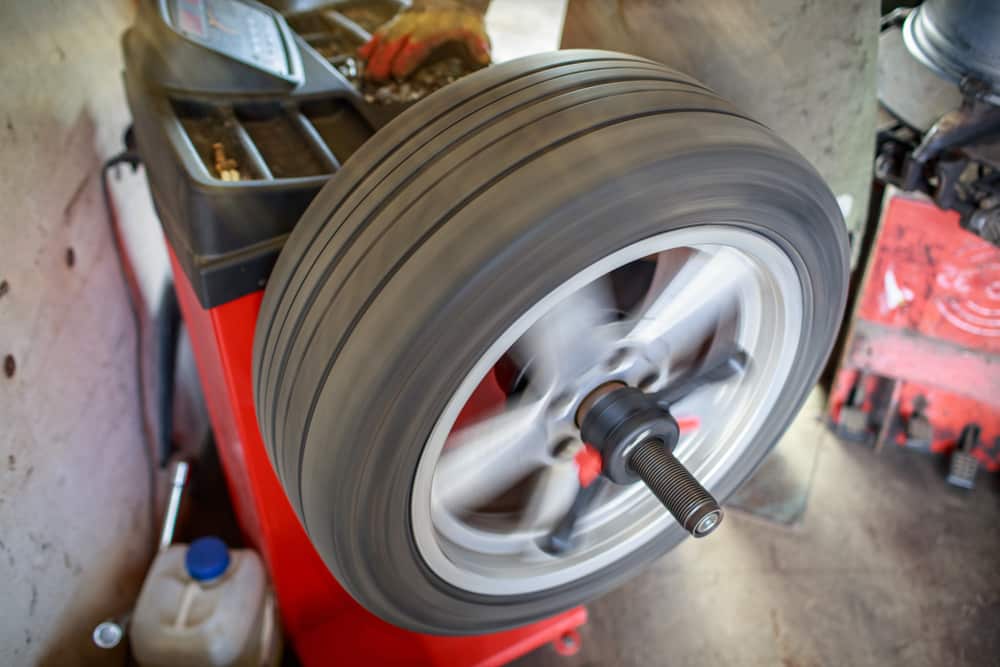
With the tires unbalanced, they will wear unevenly, causing you to need replacements more frequently. Considering the cost of new tires, it’s wise to keep them balanced and extend their lives.
Additionally, when you drive with unbalanced tires, you lose precious money in gas. The fuel economy drops as the ride isn’t optimized. You could be spending more in wasted fuel than it would cost to balance the tires.
It’s also important to have all new tires balanced. They can come from the factory with imperfections. Therefore, any time new tires are installed, they should be balanced. It’s essential to have the tires rebalanced every time you get them rotated.
Furthermore, if you switch out the tires for the season, they should be balanced. Whenever you put the summer or winter tires on, have them balanced to ensure they last as long as possible.
If you aren’t sure how often to have the tires balanced, check your owner’s manual. The correct interval is normally included with your recommended maintenance schedule or can be done with every tire rotation. At most, you shouldn’t go more than two years between the tire balancing appointments. Yet, if you drive on uneven road surfaces, you may need to have it performed more frequently than normal.
How Much Does It Cost To Balance The Tires?
On average, expect to spend around $15 per tire for balancing. The cost depends on what type of vehicle you drive and where you have the balancing performed. It can be done at most tire shops, dealerships or auto care centers, such as Walmart. With some establishments, these appointments are included when you purchase extended service plans with the new tires, so you may not have to pay anything extra.
It doesn’t take long for the technicians to balance the tires. Your wheel and tire are placed on a tire balancing machine that takes measurements to determine where the lighter and heavier areas are. Adjustments are performed to even out the weight differences. That’s why it’s helpful to have this done when the tires are being rotated since the tires and wheels are already off the car.
Here’s what is done during tire balancing:
- The tire and wheel are mounted to the tire balancing machine.
- While the wheel is spun, the vibration measurements are recorded.
- The balancing machine determines where weight needs to be added.
- Weights are added to adjust the balance.
- If weights are already installed, they may need to be repositioned or adjusted.
- The tires and wheels are reinstalled back on the car.
In all, you may spend 30 to 45 minutes having the tires balanced as long as there’s no wait at the service center.
Tire Balance vs. Wheel Alignment
Many people confuse tire balancing with wheel alignment, although these are two separate services. While both the unbalanced tires and the misaligned wheels can lead to several of the same symptoms, these are two different issues.
With the tire balancing, the tire and wheel are removed from the vehicle and placed on a machine. This machine determines which parts of the assembly are lighter, so weights can be added to the rim to balance out the operation. On the other hand, wheel alignment involves putting the vehicle on a rack to straighten out the wheels so they all drive in the same direction at the same angles.
Can you fix unbalanced tires?
Yes, the tires and wheels are placed on a tire balancing machine that determines where weights need to be added. With these weights in the correct location, the tires will no longer vibrate or shake and the contact patch will remain even across the road surface, leading to normal tread wear.
How long can you drive a car with unbalanced tires?
You shouldn’t continue driving a car if the tires are unbalanced. Not only is it going to cause more wear to the tire tread, but it could lead to other component failures among the suspension and steering systems. Furthermore, if it becomes too difficult to control the vehicle during the vibrations, you may lose control of the car.
At what speed do unbalanced tires shake?
In many cases, you may not feel the unbalanced tires while driving at lower speeds. Depending on how off the weight is, you may not notice the problem until you start traveling at highway speeds, typically 60 mph or faster. The faster you go, the worse the vibrations may become, causing you to lose control in some situations.
Does an alignment fix unbalanced tires?
No, wheel alignment doesn’t do anything to balance tires. During a wheel alignment, the car is placed on a rack and the wheels are lined up with one another and the road. Tire balancing involves adding weights to the rim to balance out the tire and wheel assembly so it rolls in a steady pattern.
Can unbalanced tires ruin alignment?
Yes, in some cases, it’s possible. When the tires aren’t balanced, suspension parts can start to wear prematurely. One of the most common reasons for bad wheel alignment is failing suspension parts. Therefore, if the condition gets that bad, the alignment could also need to be fixed at the same time.
If you think that your car tires may be unbalanced, it’s best to have service performed as soon as possible. Continuing to drive with the tires out of balance only leads to excessive and uneven wear, as well as reduced fuel economy. It also causes more wear to the suspension and steering systems, which cost much more to repair.
Ideally, you want to have the tires balanced whenever new ones are installed or if you’ve recently encountered some type of impact that would have caused a lost wheel weight. You can also check with your local service center or dealership to see what the recommended interval is for your vehicle to have regular tire balancing performed. In most cases, it will be done whenever you have the tires rotated.
Categories: Tires
